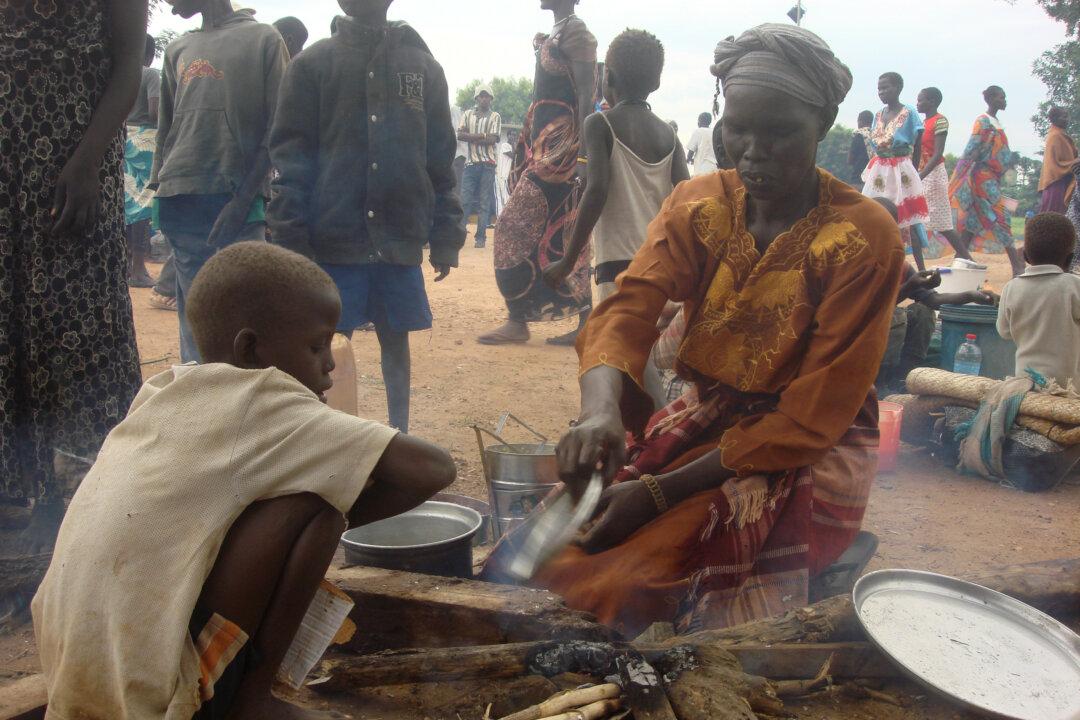Syrians used to be proud of the peaceful coexistence between Christians and Muslims. They no longer are. Under the harsh rule of the Alawite dictators, some religious freedom was preserved. Christians fleeing other conflicts in the Middle East found refuge and made their home in Syria. Today, Christians in Syria are targeted by both government and rebel forces. Their salvation is fleeing the country to Lebanon, Turkey, and Jordan.
Christians account for approximately 10 percent of Syria’s 22 million people. According to Emanuel Aydin, a bishop of the Syrian Orthodox Church, Christians are in the middle of tensions between Alawites, Shi’ites, and Sunni Muslims. Many have had to convert in order to survive. According to Bishop Aydin, 500,000 Syrian Christians have fled the war to Lebanon, Eastern Europe, and Scandinavian countries. Those that remain are caught in the crossfire between the rebels and the government.
It is estimated that more than 300 Christians have been killed during the war, although they didn’t participate in the hostilities. Several have also been kidnapped. Among them are two bishops: Youhanna Ibrahim, the Syriac Orthodox bishop of Aleppo and Boulos al-Yaziji, the Greek Orthodox bishop of Metropolitan Aleppo and Iskenderum. They were kidnapped after their driver was shot to death. The whereabouts of the bishops is still unknown.
In addition to those cases, last June, the Rev. François Murad, a Franciscan priest, was beheaded by jihadists after fighters from the rebel group Jabhat al-Nusra attacked the monastery where he was staying in Edlib, a northwestern Sunni city with a small Christian population. After the beheading, a video was posted online with details of the brutal incident. Although it has been accused by the rebels of supporting the government, the majority of Syria’s Christian community has carefully avoided taking sides.
Members of the clergy are not the only targets of the rebels, however. There have been reports that a cluster of Christian villages located along Syria’s Orontes River have been almost totally destroyed, forcing thousands of civilians into hiding. Some women have to cover themselves up with the abaya, a robe-like dress used by Muslim women.
Among the voices for peace in that region is Mother Agnes-Mariam de la Croix, the superior of a convent near Qara, located 50 miles from Damascus. In June 2012 she was warned that she was targeted for kidnapping after she revealed that about 80,000 Christians had been “cleared out” from their homes in Homs by the rebels and forced to flee the country.
As she declared to The Australian, only 1 in about 20 rebel fighters is Syrian. The rest come from countries ranging from Britain to Pakistan, from Chechnya to Indonesia, and from Albania to North Africa. Many of these rebels fought in Iraq and Afghanistan and now are part of the groups fighting the government.
Although no religious community has been spared persecution, only the Christians in Syria face an “existential threat,” according to a report by the U.N. Human Rights Council’s Commission of Inquiry in Syria.
“Christians are the targets of an ethno-religious cleansing by Islamists militants and the courts. In addition, they have lost the protection of the Assad government, making them easy prey for criminals and fighters, whose affiliations are not always clear. Wherever they appear, Islamist militias have made life impossible for the Christians,” remarked Nina Shea, director of the Hudson Institute’s Center for Religious Freedom, last June during a subcommittee hearing at the U.S. House of Representatives.
So far, no foreign power has come out unequivocally in defense of the Syrian Christians. Given the evidence of their persecution, the voice of Mother Agnes-Mariam for mussalaha (reconciliation) and peace should be finally heard.
Dr. César Chelala is a co-winner of an Overseas Press Club of America award.
Opinion
Christians Are in the Crosshairs in Syrian War
yrians used to be proud of the peaceful coexistence between Christians and Muslims. They no longer are.

Syrian protesters gather to demand the release of Italian Jesuit priest Father Paolo Dall'Oglio in the northern city of Raqqa, late on Aug. 2, 2013. Syria's main opposition group called for the immediate release of an Italian Jesuit priest who went to negotiate with jihadists and who is feared to have been taken prisoner. Mezar Matar/AFP/Getty Images
|Updated:



